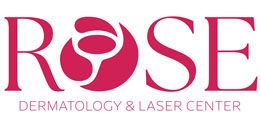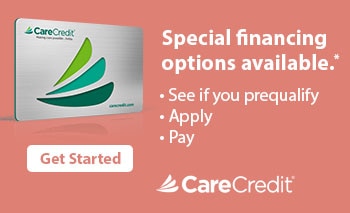5 Things To Do About Acne, and 5 Things Not To Do
A most common skin condition that both teens and adults suffer from is acne. Yet, there is much confusion and conflicting advice concerning what to do about it and how to treat it. In this posting, Dr. Rose would like to share with you her thoughts on things you can do to help fight acne, and things that may make your acne worse.
FACE WASHING
DO wash your face gently twice a day with a mild cleanser.
This should be done to remove oil, dead skin cells, dirt, and other impurities. If you have dry to normal skin, a gentle cleanser containing lactic acid may be used. If you have normal to oily skin, a cleanser with glycolic or salicylic acid may be used. Rose Dermatology has formulated a skin cleanser with lactic acid which is gentle enough to be used on all skin types.
A wonderful supplement to regular cleansing is use of a non-alcohol jojoba bead product two to three times a week. Jojoba cleanses, exfoliates, has anti-bacterial properties, reduces redness caused by acne, and can gently polish your skin.
If you like to use a toner, witch hazel is an excellent one. Witch hazel, a plant extract, has cleansing, disinfectant, and anti-inflammation properties that are well suited for acne control. If you have dry skin, be sure to get an alcohol free formulation.
DO NOT wash your face excessively or attempt to scrub your face when washing.
This can cause drying and irritation of the skin, which will only make acne worse
Likewise, alcohol can dry out and irritate skin. If you have acne, it is generally better to avoid products with high alcohol content. This may also cause rebound oiliness.
OVER-THE-COUNTER ACNE CARE PRODUCTS
DO select over-the counter acne care products that contain either Benzoyl Peroxide or Salicylic acid.
As with most skin care products, it is not the brand, or the cost, or the claims made that should determine what you use — it is the active ingredients that really matter. In the case of acne and acne prevention, the two most effective ingredients for over-the counter treatment of acne are Benzoyl Peroxide and Salicylic acid. (Although sulfur based products can be quite effective as well, the smell of sulfur is not well tolerated).
Benzoyl Peroxide works by releasing oxygen into the skin, killing the bacteria living (and often trapped) in the skin’s pores. Benzoyl Peroxide also causes exfoliation which helps remove dead skin cells
Benzoyl Peroxide is formulated as both a cream and as a gel for acne treatment, and should be used all over the affected areas. it comes in strengths of 2.5, 5.0, and 10% strength, but this is definitely not a case where more is better. The 2.5 % strength is generally equally effective, and the higher strengths may cause skin irritation. Also, Benzoyl Peroxide can bleach clothes, towels and sheets, so be careful to avoid direct contact to these.
The primary action of Salicylic acid is to exfoliate, increase shedding of skin cells of the epidermis, and reduce the size of skin pores to prevent them from clogging. It also has anti-bacterial properties, and an ability to calm redness and reduce skin inflammation. Salicylic acid is an ingredient contained in many over-the -counter products, including gels, creams, and pads
DO NOT use products containing Benzoyl Peroxide or Salicylic acid if you have sensitive skin.
Both Benzole Peroxide and Salicydic acid are effective anti-acne medications, yet both can have side effects of dryness and irritation, especially with sensitive skin. If your skin becomes red, dry, or stings from these products, discontinue using them. At this point, you may need to obtain medical evaluation and guidance.
POPPING PIMPLES
DO allow blemishes to heal on their own, which will usually occur in several days.
However, if you feel the need to pop a zit, have tender deep red nodules, or have one that just “won’t go away”, you should have it treated by a board certified dermatologist. A properly trained professional can lance a pimple to remove the contents safely with sterile instruments, minimizing risk of infection and scarring. If needed, any inflammatory lesion can be treated with an injection of corticosteroids as well.
As an alternative, if you have a big honker that you want to diminish in appearance, try this 3 step process: (i) apply a salt water compress for 3-5 minutes (one teaspoon salt: ½ cup distilled water at room temperature), (ii) then dot on an over-the counter Benzoyl Peroxide gel, (iii) then dot on a 1% hydrocortisone cream. Do this twice a day until clear or resolved.
DO NOT give in to the urge to pop a pimple on your own.
Yes, it’s really tempting to want to pop that pimple and try to make it go away! But Dr. Rose’s advice is –don’t do it. Picking at your pimples can worsen your acne, spread any infection, and may cause scarring and/or discoloration.
Squeezing a pimple damages the follicle wall deep inside your skin, which can lead to inflammation and breakouts in the picked area. Popping a pimple also allows bacteria well contained in the head (pustule) to spread into other nearby pores or skin thereby extending the infection. There is also risk that improper puncturing or picking at the surface will push bacteria and debris deeper into the skin, causing greater risk of infection and scarring.
ORAL MEDICATIONS
DO ask your doctor about oral medications for severe acne.
People with moderate to severe acne who have not responded to over-the-counter products or topical treatments may greatly benefit from oral medications prescribed by their doctor. There are various classes of oral medications available.
Low dose oral antibiotics on a short term basis can be prescribed for treating acne. This works especially well on inflamed acne.
Isotretinoin (Accutane) is a treatment for severe acne that has seen complete remission or prolonged improvement in most patients after one course of 5-6 months. Because isotretinoin can have serious side effects, including birth defects, isotretinoin is prescribed only under a special program approved by the Food and Drug Administration called iPLEDGE. Isotretinoin can only be prescribed by healthcare providers and dispensed by pharmacies registered with iPLEDGE.
For young women with acne, birth control pills may be an effective acne treatment for regulating the hormone that causes skin to be oily. Likewise, women with adult acne can benefit from a diuretic, spironolactone.
DO NOT use anti-acne antibiotics for an extended period of time.
Dr. Rose believes that long term oral antibiotic treatment for acne is not healthy for anyone. Whatever benefits do not outweigh the risks of developing superbugs, resistance, G.I. upset, yeast infection, and photosensitivity. In general, if long term antibiotics are indicated, isotretinoin or other alternatives should be considered.
LASER TREATMENT
DO consider laser therapy to treat difficult active acne and acne scars.
Laser technology and techniques have made significant advances in both the treatment of active acne and reduction of scarring resulting from moderate to severe acne.
For difficult to treat acne cases, ablative laser treatments may be effective in treating active acne. Rose Dermatology has had some impressive results in controlling acne with its Laser Minipeel™ procedure, as well as with Fractora ™ fractional radiofrequency.
Laser resurfacing and Fractora™ fractional radiofrequency treatment may also be highly effective in improving textural scarring and discoloration caused by acne. Lumecca™ intense pulsed light or other laser therapy may also be used for improvement of discoloration caused by acne.
DO NOT receive laser treatment for scars or discoloration until your acne is well controlled.
Do not chase your tail! Until your acne is well controlled, you may continue to get more scarring and textural changes. Once your acne is cleared, a plan can be tailored for your scarring and discoloration to get you looking your best.



